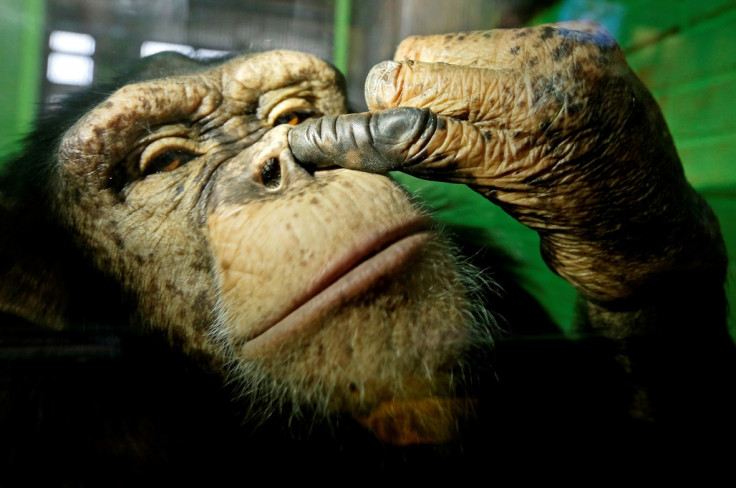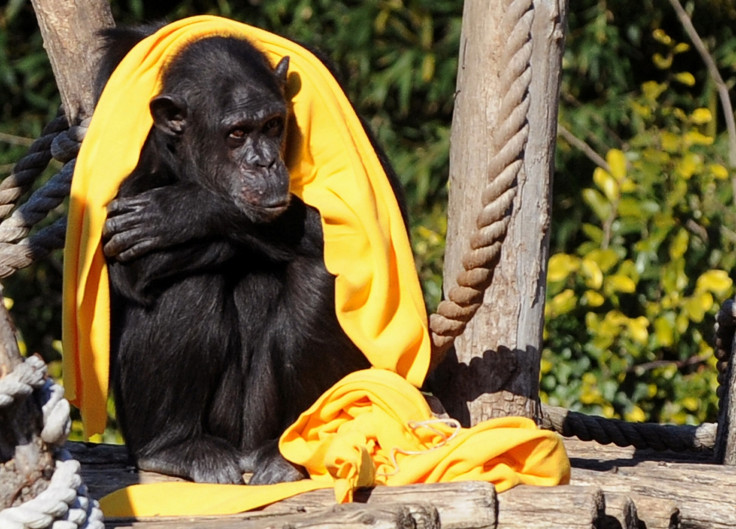Stop sneezing on the chimpanzees! Primates in Uganda are dying from human cold virus
A study has identified that a community of wild chimpanzees in the Kibale National Park was getting sick from rhinovirus C.

Chimpanzees in Africa have been suffering from the sniffles and it looks like human beings are to blame. Research into an outbreak of respiratory disease in a community of wild chimpanzees in Uganda's Kibale National Park has identified that a human "common cold" virus known as rhinovirus C was killing healthy chimps.
Scientists believe that the virus could have been transmitted to the primates through researchers, conservationists and tourists who may have come into contact with the animals. They published their findings on 13 December in the journal Emerging Infectious Diseases.
"This was an explosive outbreak of severe coughing and sneezing," Tony Goldberg, a professor at the University of Wisconsin–Madison's School of Veterinary Medicine and one of the senior authors of a report, said. "It was completely unknown that rhinovirus C could infect anything other than humans."
The team was able to pinpoint the virus when they conducted a post mortem of a two-year-old chimp named Betty who had died from the infection. "It was surprising to find it in chimpanzees, and it was equally surprising that it could kill healthy chimpanzees outright," Goldberg said.
The cold outbreak was recognised in February 2013 when most of the chimpanzees in the community fell ill. During that period, five of them, including Betty, ended up dying.
In humans, the rhinovirus C is severe but not fatal and can be treated with antibiotics. Chimps in zoos would also get medication to treat an infection. "From the virus alone the chimps would have probably not have died," Fabian Leendertz of the Robert Koch Institute in Berlin, Germany, who runs a chimp health project in the Tai forest in Ivory Coast, said. He opined that the virus, combined with the bacterial infections that accompanied it, made it deadly.
"We must decide how much we have to invasively treat the wild apes," he said. "Do we have to get away from the "hands off" philosophy?"

James Gern, another senior author of the study and a professor of allergy and immunology in the UW School of Medicine and Public Health, pointed out that the virus most often affects human children and can be a precursor or complicating factor for asthma.
"Chimps seem to be genetically predisposed to have problems with this virus," Gern said. "The virus found in Betty was one that looked like it came from a human, and the level of virus in the lung was comparable to what we see in children."
Much of the conservation work conducted is to protect apes from poachers, but study co-author Peter Walsh of the Max Planck Institute for Evolutionary Anthropology believes this is the first time the disease effects of research and tourism have been quantified and compared with the anti-poaching effect.
Goldberg believes the findings will help humans take precautions when coming into contact with wild apes. For now, the team have chosen to wear heavy N95 hospital face masks in the field. "They're a bit hot, but OK," Leendertz mentioned. "We need to find ways to maximise the benefit of research and tourism by minimising the negative effect of disease."






